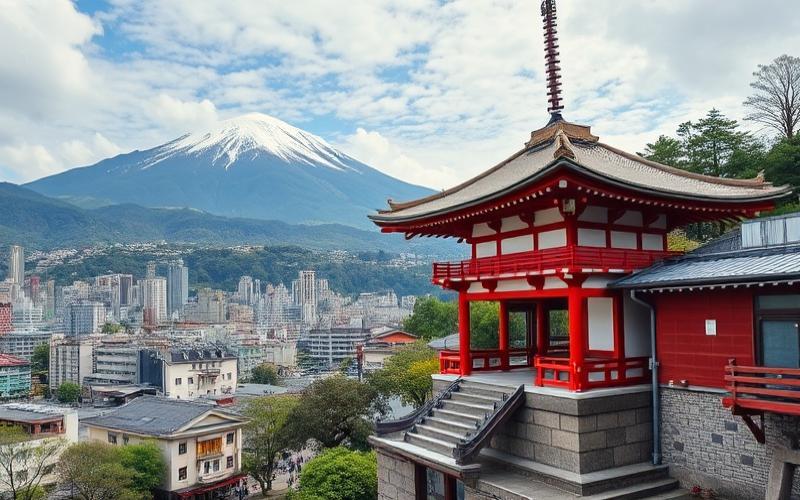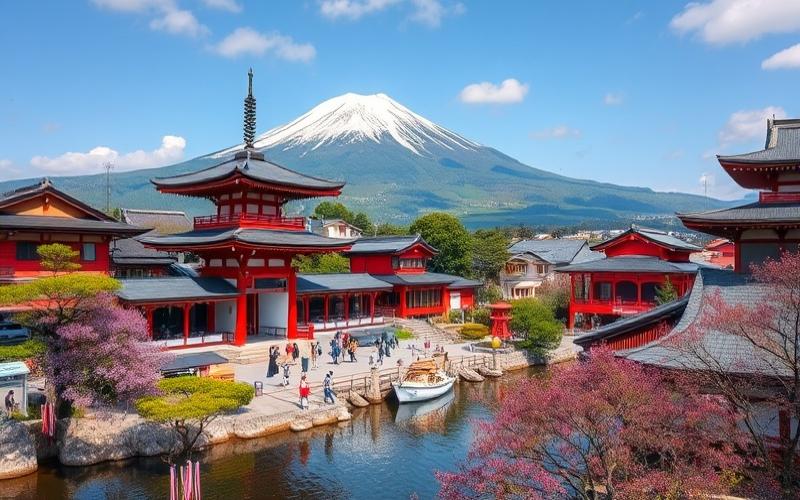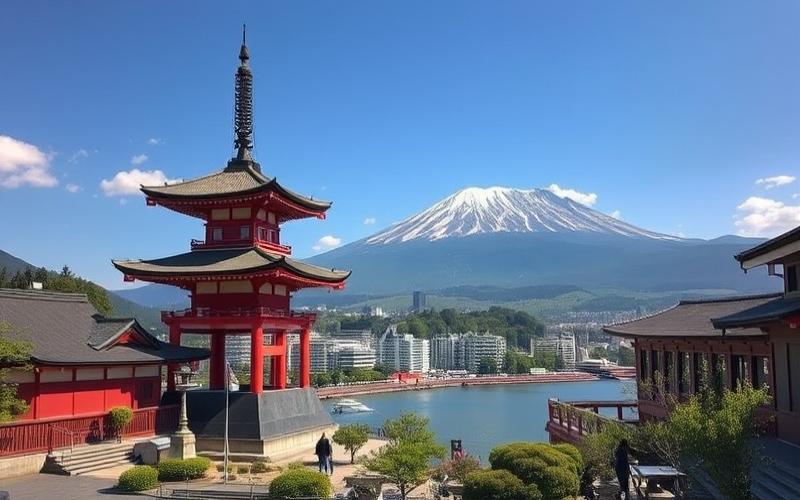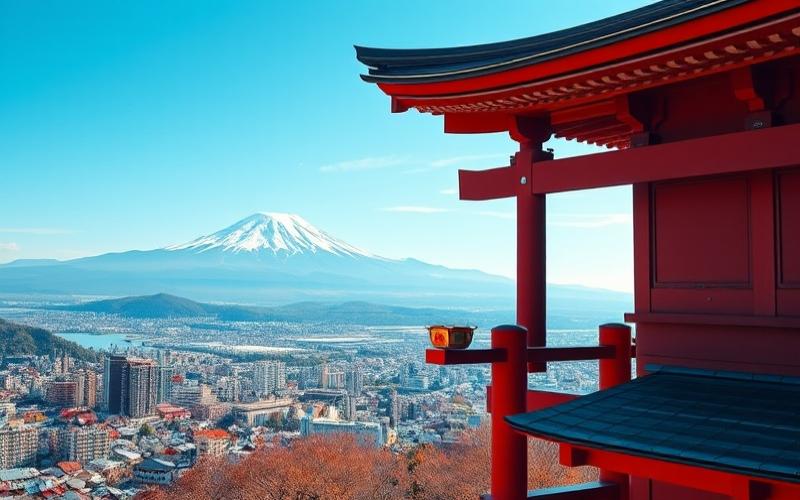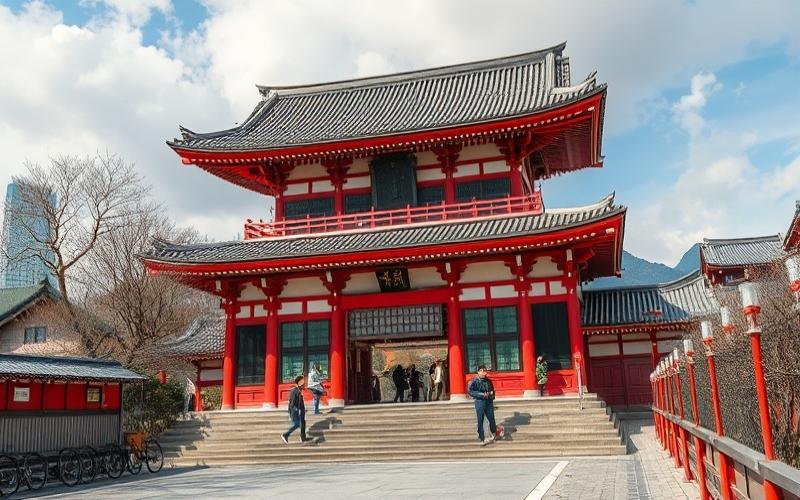
 Published on and written by Cyril Jarnias
Published on and written by Cyril Jarnias
Japan, the world’s third-largest economy, attracts many foreign entrepreneurs eager to establish themselves in this dynamic and innovative market. However, starting a business in the Japanese archipelago requires a thorough understanding of the different legal structures available and their implications. Each status has its advantages and disadvantages in terms of liability, taxation, and daily management. In this article, we will explore the main types of business structures in Japan and guide you in choosing the status best suited to your entrepreneurial project.
Main Legal Statuses for Doing Business in Japan
The Japanese legal system offers several options for foreign entrepreneurs wishing to start a business. Here is an overview of the most common structures:
1. Kabushiki Kaisha (KK): The Japanese Stock Corporation
The Kabushiki Kaisha, or KK, is the Japanese equivalent of a corporation. It is the most prestigious and widely used legal form by large companies in Japan. It offers significant credibility with Japanese business partners and clients.
- Minimum required capital: 1 yen (since 2006)
- Limited liability for shareholders
- Complex governance structure with a board of directors
- Ability to issue stocks and bonds
- Taxation: Corporate tax (average rate of about 30%)
The KK is particularly suitable for companies with significant growth ambitions or those needing an image of stability and reliability in the Japanese market. However, its management can be more complex and costly than other legal forms.
Good to know:
Establishing a KK typically requires the assistance of a Japanese lawyer specializing in corporate law to navigate the administrative and legal complexities.
2. Godo Kaisha (GK): The Equivalent of an LLC
Introduced in 2006, the Godo Kaisha (GK) is a more recent legal form gaining popularity, especially among foreign entrepreneurs. It offers a good compromise between management simplicity and credibility in the Japanese market.
- No minimum capital required
- Limited liability for members
- More flexible management structure than KK
- Option to be taxed as a partnership or corporation
- Simplified creation and management processes
The GK is particularly suitable for small and medium-sized enterprises, startups, or subsidiaries of foreign companies seeking quick and flexible establishment in Japan. It offers a good alternative for those who find the KK too complex or costly to manage.
Good to know:
A GK can be converted into a KK later if the company experiences significant growth, offering valuable flexibility for entrepreneurs.
3. Branch Office
For foreign companies wishing to establish a presence in Japan without creating a separate legal entity, the branch office is an option to consider. It allows for relatively quick and simple establishment while remaining a direct extension of the parent company.
- No minimum capital required
- The parent company is fully responsible for the branch’s activities
- Can conduct revenue-generating activities
- Taxation: Only taxed on income generated in Japan
- Requires a resident representative in Japan
The branch office is often chosen as a first step for establishing in Japan, allowing market testing before committing to creating a separate legal entity. However, it may be perceived as less stable or permanent by Japanese partners compared to a KK or GK.
Good to know:
Converting a branch into a separate legal entity (KK or GK) can be complex and costly. Therefore, it’s important to carefully evaluate your long-term goals before choosing this option.
Sole Proprietorship or Corporation: Which Structure to Choose in Japan?
The decision between creating a sole proprietorship or a corporation in Japan depends on several factors, including the nature of your business, your growth objectives, and your risk tolerance. Let’s examine the advantages and disadvantages of each option.
Sole Proprietorship in Japan: Simplicity and Flexibility
In Japan, the sole proprietorship is called “Kojin Jigyou” (個人事業). This structure is particularly suitable for freelancers, independent consultants, or small commercial activities. Here are its main characteristics:
- Simple and quick creation process
- Low startup and management costs
- Flexibility in daily management
- No minimum capital required
- Taxation on personal income (potentially more advantageous for small incomes)
- Unlimited liability for the entrepreneur’s personal assets
- Difficulty raising funds or attracting investors
- Less professional image with Japanese clients and partners
- Potential limitations for certain regulated activities or sectors
The sole proprietorship in Japan is particularly suitable for foreign entrepreneurs starting a small-scale activity or wanting to test the Japanese market before committing to a more complex structure.
Good to know:
Foreign entrepreneurs wishing to create a sole proprietorship in Japan generally need to obtain a business visa or an investor/business manager visa, which can be more complex than for creating a corporation.
Corporation: Credibility and Growth Prospects
Opting to create a corporation in Japan, whether as a KK or GK, offers several significant advantages, especially for companies aiming for substantial growth or a lasting presence in the Japanese market.
- Limited liability for members or shareholders
- Better credibility and professional image with Japanese partners
- Ability to attract investors and raise funds more easily
- Greater opportunities for growth and expansion
- Increased ease in obtaining business visas for foreign executives and employees
- More complex and costly creation process
- Heavier administrative and accounting obligations
- Potential need to hire professionals (lawyers, accountants) for management
- Potentially higher taxation, especially for small incomes
The choice between KK and GK will mainly depend on your long-term goals, the size of your company, and your industry. The KK is generally preferred for large companies or those aiming for strong growth, while the GK offers a good compromise for SMEs and startups.
Good to know:
Since 2015, Japan has introduced a “single-member limited liability company” system (一人合同会社), allowing the creation of a GK with a single member, offering an interesting alternative for individual entrepreneurs wanting to benefit from a corporate structure.
Key Factors to Consider When Choosing Your Legal Status in Japan
Choosing the right legal status for your business in Japan is a crucial decision that will have long-term implications for your activity. Here are the main factors to consider:
1. Nature and Scale of Your Business
The size and type of activity you plan are determining factors in choosing your legal structure. If you plan a large-scale activity requiring significant investments or involving partnerships with large Japanese companies, a KK will likely be more appropriate. For a startup or consulting activity, a GK might offer a better balance between credibility and flexibility.
It is also important to consider the specifics of your industry. Certain fields, like finance or insurance, may have specific regulatory requirements that will influence your choice of legal structure.
2. Taxation and Finances
Tax implications vary depending on the chosen legal status. In Japan, the corporate tax rate is about 30% on average (including local taxes), but can vary depending on the company’s size and location. Sole proprietorships are taxed on personal income, which can be advantageous for small incomes but may become less attractive as profits increase.
Also consider your financing needs. If you plan to raise funds from investors or borrow from Japanese banks, a corporate structure (KK or GK) will generally be preferred.
3. Image and Credibility in the Japanese Market
Japanese business culture places great importance on a company’s image and stability. A KK is generally perceived as the most prestigious and stable form, which can be a major asset in business relationships in Japan. However, GKs are gaining recognition and may be sufficient for many activities, especially if they are well-established in their sector.
4. Management Complexity and Administrative Costs
Managing a KK involves heavier administrative and reporting obligations than a GK or sole proprietorship. Ensure you have the necessary resources to manage these obligations or are prepared to hire professionals (accountants, lawyers) to assist you.
5. Flexibility and Future Evolution
Think long-term. If you envision rapid growth or a potential IPO, a KK will be more suitable. If you prefer to keep a flexible structure with the possibility to evolve later, a GK could be a good starting point.
6. Visa and Residence
Your choice of legal structure can impact your ability to obtain a business visa in Japan. Creating a corporation (KK or GK) generally facilitates obtaining an investor/business manager visa, while the process can be more complex for a sole proprietorship.
Good to know:
Japan has recently relaxed some rules for foreign entrepreneurs, including the introduction of a “startup visa” in certain special zones. These initiatives aim to attract more foreign entrepreneurs and may influence your choice of structure and location.
Creation Process: Key Steps to Establish Your Business in Japan
Regardless of the chosen legal structure, starting a business in Japan involves several crucial steps. Here is an overview of the process to help you plan your establishment:
1. Preparation and Planning
Thorough preparation is essential before starting a business in Japan. This phase includes:
- Conducting in-depth market research
- Developing a detailed business plan
- Defining your capital structure and financing
- Researching local partners or advisors
It is highly recommended to consult experts in business creation in Japan from this stage to ensure you fully understand all the legal and tax implications of your project.
2. Choosing the Company Name
Choosing your company name is an important step. In Japan, it is crucial to check name availability and ensure it does not violate existing trademarks. For a KK or GK, the name must include the terms “Kabushiki Kaisha” (or “KK”) or “Godo Kaisha” (or “GK”) respectively.
3. Preparing Incorporation Documents
For a KK or GK, you will need to prepare the company’s articles of incorporation (定款, teikan). These documents must be written in Japanese and include information such as:
- Company name and address
- Business purpose
- Amount of share capital
- Names and addresses of founders and directors
4. Opening a Bank Account and Depositing Capital
For a KK or GK, you will need to open a bank account in the name of one of the founders or a designated representative to deposit the initial capital. Although there is no legal minimum for capital, an amount of at least 1 million yen is generally recommended to give an image of financial solidity.
5. Registration with the Legal Affairs Bureau
The official registration of your company is done with the Legal Affairs Bureau (法務局, Homukyoku). This step involves submitting various documents, including:
- Company articles of incorporation
- Proof of capital deposit
- Notifications of appointment of directors and auditors (for a KK)
- Seal certificate (印鑑証明書, inkan shomeisho) of founders and directors
6. Obtaining the Registration Certificate
Once registration is approved, you will receive a registration certificate (登記簿謄本, tokibo tohon). This document is crucial as it proves the legal existence of your company in Japan.
7. Post-Registration Procedures
After registration, several administrative procedures are necessary:
- Registration with the local tax office
- Registration with social insurance and labor insurance (if you have employees)
- Obtaining specific licenses or permits for your activity, if applicable
8. Opening a Corporate Bank Account
Finally, with your registration certificate, you can open a bank account in your company’s name. This account will be essential for managing your company’s financial transactions.
Good to know:
The process of creating a business in Japan can take 2 to 4 weeks for a GK, and 4 to 6 weeks for a KK, not including preparation time. It is highly recommended to hire local professionals (lawyers, accountants) to guide you throughout the process and avoid costly mistakes.
Conclusion: Making the Right Choice for Your Entrepreneurial Future in Japan
Choosing the right legal status for your business in Japan is a crucial decision that will have significant repercussions on your entrepreneurial adventure. Whether you opt for a prestigious Kabushiki Kaisha (KK), a flexible Godo Kaisha (GK), or start with a sole proprietorship, each option has its advantages and challenges.
The key to success lies in a thorough analysis of your long-term goals, the nature of your business, and your understanding of the Japanese market. Don’t hesitate to consult local experts in business law and taxation to guide you through this process. Their expertise can prove invaluable in navigating the complexities of the Japanese legal and administrative system.
Remember that your choice of legal structure is not final. As your business evolves, you can consider modifying your status to adapt to your new needs and goals. The essential thing is to start on the right foot, with a structure that allows you to focus on developing your business while respecting Japan’s legal and tax requirements.
Finally, keep in mind that success in Japan doesn’t depend solely on the chosen legal structure. Understanding Japanese business culture, respecting local norms, and building strong relationships with your Japanese partners and clients will be just as crucial for your success.
Disclaimer: The information provided on this website is for informational purposes only and does not constitute financial, legal, or professional advice. We encourage you to consult qualified experts before making any investment, real estate, or expatriation decisions. Although we strive to maintain up-to-date and accurate information, we do not guarantee the completeness, accuracy, or timeliness of the proposed content. As investment and expatriation involve risks, we disclaim any liability for potential losses or damages arising from the use of this site. Your use of this site confirms your acceptance of these terms and your understanding of the associated risks.













